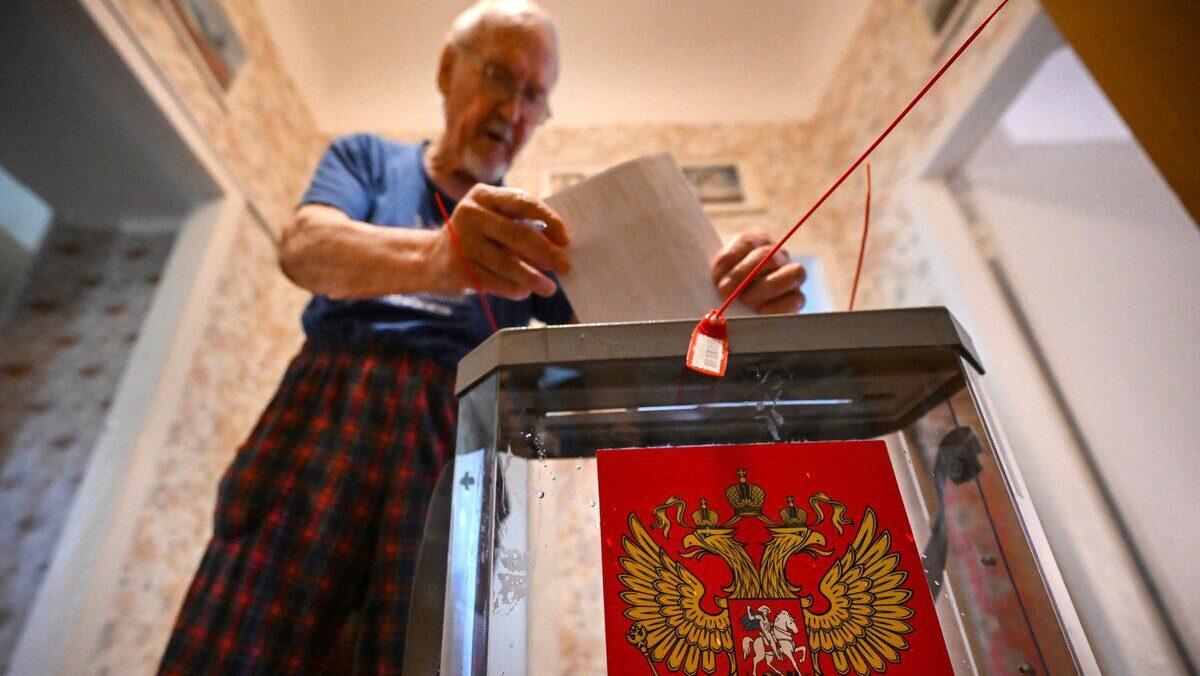
A man votes on the first day of local elections in Russia, at home using a mobile ballot box in Moscow on September 8, 2023.
Photo: Natalia KOLESNIKOVA / AFP
Gubernatorial, regional, and local elections will be held across most parts of Russia on Sunday, September 10th, with voting having commenced on Friday in some regions. This is the first time that the citizens of Russian-controlled Ukrainian territories Donetsk, Luhansk, Kherson, and Zaporizhzhia are voting under the Russian electoral legislation. The vote has been denounced by the Kyiv Government and Western nations.
Russia launched a full-scale invasion of Ukraine 18 months ago and currently controls about one-fifth of the country, including the Crimean Peninsula; which it annexed in 2014, most of the Luhansk region, and large parts of the regions of Donetsk, Zaporizhzhia, and Kherson. After organising internationally unrecognised referenda, Russia declared its annexation of the latter four areas last September, even though none of the regions were—and still are not—fully under Russian control.
The elections are taking place at a time when the Ukrainian army is continuing its counteroffensive against Russian forces in western Zaporizhzhia and the Donetsk city of Bakhmut, and Russia continues to pound Ukrainian cities in the centre and east of the country.
NEW: #Ukrainian forces continued offensive operations near #Bakhmut and in western #Zaporizhia Oblast on September 7 and made further gains on both sectors of the front.
— ISW (@TheStudyofWar) September 7, 2023
Latest: https://t.co/xp06POOBVB
Additional key takeaways 🧵⬇️ pic.twitter.com/nkoHuBseUA
The election “constitutes a flagrant violation of international law, which Russia continues to disregard,” the Council of Europe said this week. The Ukrainian Foreign Ministry called the voting “fake elections,” and accused Moscow of grossly violating its sovereignty. U.S. Secretary of State Antony Blinken called the elections illegitimate.
Large swaths of Donetsk and Luhansk—with large Russian-speaking populations—have been held by Russian-backed separatists since 2014, and many of their residents sympathise with Russia. However, local residents and Ukrainian activists in Kherson and Zaporizhzhia say poll workers make house calls accompanied by armed soldiers, and most voters know little about the candidates, up to half of whom reportedly arrived from Russia. Those who refuse to vote are being detained for three or four hours, Pavlo Lysianskyi of the Eastern Human Rights Group told AP.
The main contender in the election is United Russia, a party loyal to Russian President Vladimir Putin, that has dominated Russian politics for the last two decades. The party is expected to win the most seats across Russia, as it is backed by 35-40% of the population. All other significant political forces, including opposition parties, are broadly loyal to Putin and support the war in Ukraine. Western critics of Putin say that elections in Russia are not free, as the real opponents of the government have been cowed, exiled, or, like Alexei Navalny, jailed, with critical media shut down.
